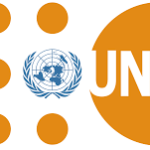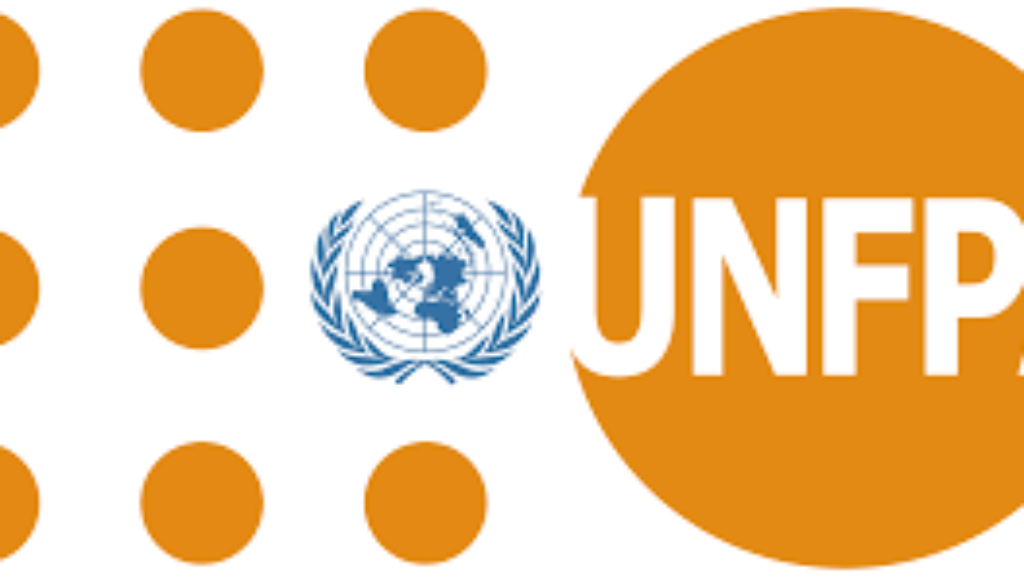Individual Consultant – Country Program Evaluation, Expert in Sexual and Reproductive Health and Rights and Adolescent and Youth Health Vacancy Job Ref: VACUNFPA3355-27

United Nations Population Fund (UNFPA)
Subject of the consultation:
The United Nations Population Fund (UNFPA) is the United Nations agency dedicated to creating a world in which every pregnancy is wanted, every childbirth is safe and every young person realizes her or his or her full potential. UNFPA’s strategic objective is to “achieve universal access to sexual and reproductive health, ensure reproductive rights for all and accelerate implementation of the Programme of Action of the International Conference on Population and Development (ICPD). With this call to action, UNFPA contributes directly to the 2030 Agenda for Sustainable Development, in line with the Decade of Action to achieve the Sustainable Development Goals”
To achieve this goal, UNFPA is focusing its work on three transformative outcomes: (1) ending preventable maternal deaths; (2) eliminating unmet need for family planning; and (3) ending gender-based violence (GBV) and harmful practices, including female genital mutilation and child, early and forced marriage.
These transformative outcomes will contribute to the achievement of the Sustainable Development Goals (SDGs), but also directly contribute to the following: (a) ensuring healthy lives and promoting well-being for all at all ages (Goal 3); (b) achieving gender equality and empowering all women and girls (Goal 5); and (c) reducing inequalities within and among countries (Goal 10); and taking urgent action to combat climate change and its impacts (Goal 13). promote peaceful and inclusive societies for sustainable development, provide access to justice for all and ensure effective, accountable and inclusive governance at all levels (Goal 16); and strengthen the means of implementation of the global partnership for sustainable development (Goal 17).
In line with the vision of the 2030 Agenda for Sustainable Development, UNFPA seeks to strengthen its focus on “leaving no one behind” and “reaching those furthest behind first”.
UNFPA has been active in Cameroon since 1969. The support that the UNFPA Cameroon country office provides to the Government of Cameroon (GoC) under the 8th Country Programme (2022-2026) focuses on the national development needs and priorities set out in:
- Vision 2035 in which the Government aims to make Cameroon an emerging, democratic country, united in its diversity.
- The National Development Strategy 2020-2030 (SND30), whose main pillars focus on transformations based on a more viable structuring of the economy, inclusive and more egalitarian human development, the strengthening of democratic governance for a more peaceful and just society, a transition towards sustainable management of the environment and resources
- The 2020-2030 health sector strategy (updated 2016-2027 sector strategy)
- Multi-year operational plan for family planning in Cameroon 2024-2030 draft 1
- National Strategic Plan SRMNIA-Nut 2024-2030
- Strategy to combat obstetric fistulas in Cameroon: strategic plan 2018-2023
- National Health Development Plan (NHDP) 2021-2025
- Health system transformation agenda
- Community Health Strategic Plan 2021-2025
- Triple Elimination Strategy for HIV, Hepatitis B and Syphilis 2024
- SRMNIA_Nut Strategic Plan 2024-2030
- Strategic plan for securing health products 2021-2025
- National HIV Strategic Plan 2024-2030
- National strategy to combat hepatitis and STIs
- Framework for guiding community-based HIV interventions
- National Strategic Plan for the Fight against HIV by Religious Denominations
- National Youth Policy 2015
- Youth Plan 2015
- National Strategic Framework for the Response to HIV in Adolescents/Youth 2021-2023
- MINJEC sectoral plan for the response to HIV, AIDS and STIs 2024-2030
- Sectoral plan to combat HIV in CTDs (MINDEVEL) 2022
- The education sector strategy -2023-2030
- The United Nations Common Country Assessment (CCA), 2022-2026
- The National Gender Policy 2022 – 2027 (PNG) (under validation)
- The Gender Profile of Cameroon (2020)
- Cameroon’s Second Action Plan for the Implementation of Resolutions 1325 and Related Matters (2023-2027)
- The National Strategy to Combat GBV 2022-2026 (SNLVBG)
- The National Action Plan to Combat Female Genital Mutilation 2022-2026
- Guidelines for the management of safe spaces in Cameroon
- The draft law against gender-based violence in Cameroon (2024)
- The United Nations Sustainable Development Cooperation Framework (UNSCDF) in Cameroon 2022-2026 which aims to make Cameroon a land of opportunities, civic engagement, and well-being of the population.
This Framework Plan provides for four strategic priorities, aligned with SND30, namely:
- Inclusive and sustainable growth;
- Quality, inclusive and equitable human and social development;
- Institutional support and citizen participation;
- Environmental sustainability and effective management of climate risks and disasters.
- The UNFPA Cameroon Country Programme Document 2022-2026
- The framework plan for outputs of the UNFPA country programme (PAPP) in Cameroon 2022-2026
The UNFPA Evaluation Policy (2024) encourages country offices to conduct CPEs at each programming cycle, and at least every two cycles [2] . The country programme evaluation will provide an independent assessment of the performance of the 8th UNFPA Cameroon Country Programme (2022-2026), and will offer an analysis of various enabling and constraining factors that influence programme implementation and the achievement of planned results. The country programme evaluation will also draw conclusions and provide a set of concrete recommendations for the next programme cycle.
The evaluation will be conducted in accordance with the UNFPA Evaluation Manual 2024 . The Manual provides practical guidance for managing and conducting country programme evaluations to ensure the production of quality evaluations that are consistent with the norms and standards of the United Nations Evaluation Group (UNEG) and good international evaluation practices . It provides a detailed step-by-step approach to preparing evaluations based on a sound methodology and defines the roles and responsibilities of key stakeholders at all stages of the evaluation process.
The Manual includes a number of tools, resources and templates that provide practical guidance for specific activities and tasks that evaluators and the evaluation manager carry out during the different phases of the evaluation. Evaluators, the country programme evaluation manager, country office staff and other engaged stakeholders are required to follow the full guidance in the Manual throughout the evaluation (as specified at different stages).”
The primary audience and target users of the evaluation are: (i) UNFPA Cameroon Country Office (ii) the GoC]; (iii) UNFPA Cameroon Country Office implementing partners (iv) rights holders involved in UNFPA interventions and their representative organizations (especially women, adolescents and youth); (v) the United Nations Country Team (UNCT); (vi) UNFPA West and Central Africa Regional Office (WCARO); and (vii) donors.
The evaluation findings will also be of interest to a wide range of stakeholders, including: (i) UNFPA Headquarters and offices; (ii) the UNFPA Executive Board; (iii) academia; (iv) local civil society organizations and international NGOs. The evaluation findings will be disseminated using traditional and digital communication channels.
The evaluation will be led by an Evaluation Manager in the UNFPA Cameroon Country Office, with guidance and support from the WCARO Regional Monitoring and Evaluation (M&E) Advisor and in consultation with the Evaluation Reference Group. A team of independent external evaluators will conduct the evaluation and prepare an evaluation report in accordance with these Terms of Reference (ToR).
Scope of work:
(Description of services, activities or results)
Aim, objective and scope of the evaluation
Aim
The EPP will address the following four main objectives, as outlined in the UNFPA Evaluation Policy 2024: (i) monitor and demonstrate accountability to stakeholders on performance in achieving development results and on resources invested; (ii) support evidence-based decision-making to inform development, humanitarian response and peace programming; and (iii) aggregate and share good practices and credible evaluation evidence to support organizational learning on how to achieve the best results; and (iv) empower community, national and regional actors.
Goals
The objectives of this country program evaluation are to:
- Provide the UNFPA Cameroon Country Office, national stakeholders and rights holders, UNFPA WCARO, UNFPA Headquarters and the general public with an independent assessment of the 8th UNFPA Cameroon Country Programme (2022-2026).
- Expanding the evidence base for designing the next programme cycle.
The specific objectives of this country programme evaluation are to:
- Provide independent assessment of the relevance, effectiveness, efficiency and sustainability of UNFPA support.
- Provide an assessment of the geographic and demographic coverage of UNFPA humanitarian assistance and UNFPA’s ability to connect immediate, life-saving support to long-term development objectives].
- Provide an assessment of the role played by the UNFPA Cameroon Country Office regarding the UNCT (United Nations Country Team) coordination mechanisms with a view to enhancing the collective contribution of the United Nations to development results. Furthermore, provide an assessment of the role played by the UNFPA Cameroon Country Office regarding the HCT (Humanitarian Country Team) coordination mechanisms with a view to enhancing the humanitarian response and ensuring the contribution to longer-term recovery.
- Draw conclusions from past and current cooperation, and provide a set of clear, strategic and concrete recommendations for the next programme cycle.
SRHR and Adolescent and Youth Expert who will provide expertise on integrated sexual and reproductive health services, HIV and other sexually transmitted infections, maternal health, and family planning, obstetric fistula, medical management of GBV including in humanitarian settings but also on youth-friendly SRHR services, comprehensive sexuality education, teenage pregnancy, SRHR of young women and adolescent girls, access to contraceptives for young women and adolescent girls and youth leadership and participation, youth resilience, participation in stabilization, peace and security.
He/she will contribute to the design of the evaluation methodology and participate in data collection and analysis work, with overall responsibility for contributions to evaluation deliverables in his/her thematic area of expertise. He/she will provide substantive inputs throughout the evaluation process by contributing to the development of the evaluation methodology, work plan and evaluation agenda for the field phase, participating in meetings with the EPP Manager, UNFPA Cameroon Country Office staff and the ERG. He/she will undertake a desk review and conduct interviews and focus group discussions with stakeholders, as agreed with the Evaluation Team Leader.
The terms of participation of team members (including the emerging young evaluator) in the evaluation process, their responsibilities during data collection and analysis, the nature of their respective contributions to the drafting of the design report and the interim and final evaluation report will be established with the evaluation team leader. These tasks will be carried out under his/her supervision.
Phase Days Design phase10Field phase21Report writing phase13Dissemination and facilitation of the use of evaluation results phase1Place where services are to be delivered:
The evaluation will cover the regions where UNFPA has implemented interventions: Adamawa, Centre, East, Far North, North, North West and South West. These regions were chosen because some of them have quite worrying development indicators, particularly in the areas of health, gender-based violence, youth and others because they are in humanitarian and socio-security crisis situations (North West, South West and Far North) or are affected by these crises due to the reception of internal populations and/or refugees (Adamaoua, East, Centre and North). Delivery dates and method of delivery of the work (e.g. electronically, on paper, etc.):
The expected products of the evaluation team are as follows:
- Design Report. The Design Report should translate the requirements of the ToR into a practical and implementable assessment approach, methodology and work plan. In addition to presenting the assessment matrix, the Design Report also provides information on the country situation and the UN and UNFPA response. Section 2.4 of the Manual provides the required structure of the Design Report and guidance on how to write it.
- PowerPoint presentation of the design report. The PowerPoint presentation will be made during a GRE meeting to present the contents of the design report and the program of the field phase. Based on the comments and feedback from the GRE, the EPP Manager and the Regional M&E Advisor, the evaluation team will develop the final version of the design report.
- PowerPoint presentation for the debriefing meeting with the country office and the evaluation reference group. The presentation will provide an overview of the main findings emerging from the evaluation at the end of the field phase. It will serve as a basis for an exchange of views between the evaluation team, UNFPA Cameroon country office staff (including management) and the members of the reference group, who will thus have the opportunity to provide additional information and/or correct the erroneous interpretation of data or information collected.
- Draft Evaluation Report. The draft evaluation report will present the findings and conclusions, based on the evidence provided by the data collection. It will be reviewed by the evaluation manager, the country office, the reference group and the regional M&E advisor, and the evaluation team will undertake revisions accordingly.
- Recommendations Worksheet . The EPP recommendations co-creation process begins with a set of draft recommendations proposed by the evaluation team (see Handbook, section 4.3).
- Final Evaluation Report. The final evaluation report (maximum 80 pages, excluding opening pages and annexes) will present the findings and conclusions, as well as a set of practical and actionable recommendations to inform the next programme cycle. The Handbook (section 4.5) provides the structure and guidance for preparing the report. All annexes should be complete and should include the evaluation matrix containing all supporting evidence (data and information and their source).
- PowerPoint presentation of the evaluation results. The presentation will provide a clear overview of the main findings, as well as conclusions and recommendations. It will be used to facilitate the dissemination of the final evaluation report.
Monitoring and controlling progress, including reporting requirements, periodicity format and deadline:
The Country Programme Evaluation (CPE) Manager of the UNFPA Cameroon country office, in close consultation with [government partner] coordinating the country programme, will be responsible for managing the evaluation and supervising the evaluation team in accordance with the UNFPA Evaluation Manual.
The CPE Manager will oversee the entire evaluation process, from preparation to dissemination and facilitating the use of evaluation results. It is the primary responsibility of the CPE Manager to ensure the quality, independence and impartiality of the evaluation in accordance with the UNFPA IEO methodological framework, as well as UNEG norms and standards and ethical guidelines for evaluation. The tasks assigned to the CPE Manager, for each phase of the CPE, are detailed in the Manual.
Supervision modalities:
The UNFPA Cameroon Country Office EPP Manager, in close consultation with [government partner] coordinating the country programme, will be responsible for managing the evaluation and supervising the evaluation team in accordance with the UNFPA evaluation manual.
Journey:
The evaluation team will collect the data and information needed to answer the evaluation questions during the field phase. Towards the end of the field phase, the evaluation team will conduct a preliminary data analysis to identify emerging findings that will be presented to the country office and the ERG.
The field phase should allow evaluators sufficient time to collect valid and reliable data to cover the thematic scope of the EPP. A data collection period of 4 weeks is planned for this evaluation. However, the EPP Manager will determine the optimal data collection duration, in consultation with the evaluation team during the design phase.
The field phase includes:
- Preparation of all logistical and practical arrangements for data collection
- Launch of the field phase
- Collection of primary data at national and subnational levels
- Supplement with secondary data
- Collection of photographic material
- Completing the evaluation matrix
- Facilitating a data analysis workshop
- Debriefing meeting and consolidation of feedback for the debriefing
At the end of the field phase, the evaluation team will hold a debriefing meeting with the BP and GRE to present the initial analysis and emerging results of the data collection in a PowerPoint presentation. The debriefing meeting provides an invaluable opportunity for the evaluation team to expand, qualify, and verify information as well as obtain feedback and correct misperceptions or misinterpretations.
Detailed activities for the field phase and guidance on how they should be undertaken are provided in the Manual, Chapter 3.
Required expertise, qualifications and skills, including language requirements:
The skills, abilities and experience of the SDSR expert should include:
- A postgraduate degree in public health, medicine, health financing and economics, epidemiology, biostatistics, social sciences or any related field.
- 5-7 years of experience in conducting evaluations, reviews, analyses, research studies or M&E work in the field of international development and/or humanitarian assistance.
- In-depth knowledge of SRHR, including HIV and other sexually transmitted infections, maternal health, and family planning, GBV medical management, including in humanitarian contexts.
- In-depth knowledge of adolescent and youth issues, particularly adolescent and youth sexual and reproductive health and rights, comprehensive sexuality education, teenage pregnancy, SRHR of young women and adolescent girls, access to contraceptives for young women and adolescent girls and youth leadership and participation, youth resilience, youth participation in stabilization, peace and security
- Good knowledge of humanitarian strategies, policies and frameworks, international humanitarian law and principles, as well as international humanitarian architecture and coordination mechanisms.
- Ability to ensure the ethics and integrity of the assessment process, including confidentiality and ensuring that there are no harmful effects (safety principle).
- Ability to integrate human rights and gender issues into all phases of the evaluation process.
- Good knowledge of evaluation approaches and methodology and demonstrated ability to apply qualitative and quantitative data collection methods.
- Excellent analytical skills and problem-solving abilities.
- Experience working with a multidisciplinary team of experts.
- Excellent interpersonal and communication skills (written and oral).
- Work experience in, or good knowledge of, the region and the national development context of Cameroon.
- Familiarity with the mandates and activities of UNFPA or other United Nations organizations would be an advantage.
- Excellent command of French and English, written and oral.
Inputs/services to be provided by UNFPA (e.g. support services, office space, equipment), if applicable:
The work will be done remotely with frequent group work and meetings at the UNFPA office. A workspace will be provided with all necessary support.
Online Jobs Application Portal
Please Fill ALL The Details Below To Apply For The Above Position.

